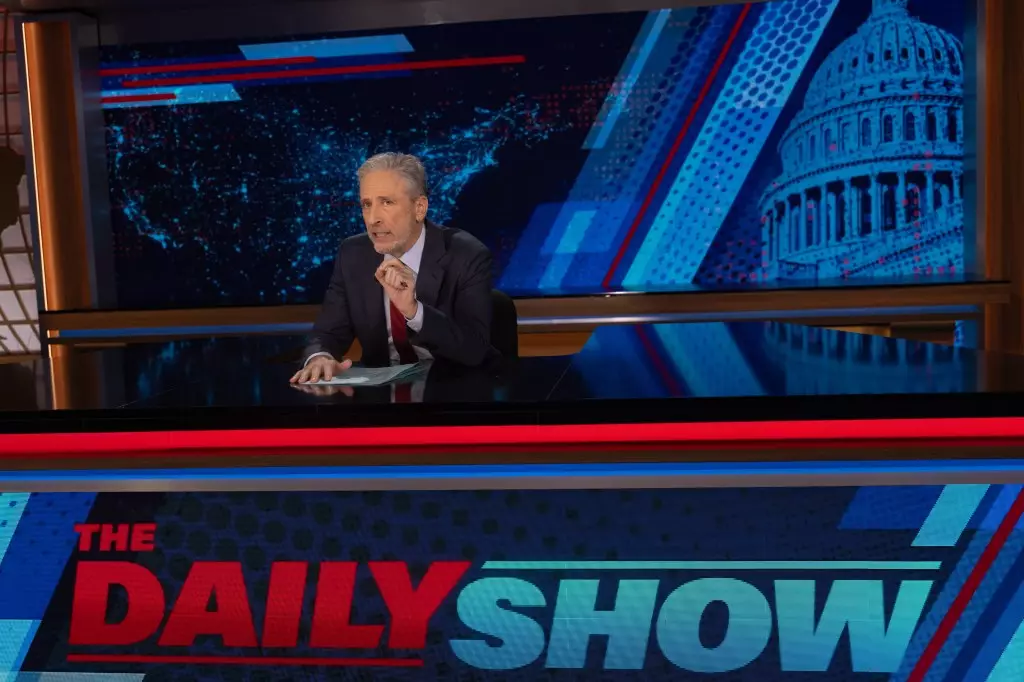In an era rife with political tension, Jon Stewart’s recent episode of *The Daily Show* encapsulates the prevailing unease among Democrats and the wider American populace. By directly addressing the audience’s anxiety, Stewart cleverly frames the social atmosphere around elections, affirming that this discomfort fuels the success of his program. His comedic strategy hinges on the acknowledgment of these fears, transforming collective anxiety into a source of engagement. As he quips about the viewership’s nervous energy being “very good for our ratings,” Stewart invites his audience to confront their discomfort while simultaneously promoting the entertainment value derived from it.
Humor as a Reflection of Reality
Stewart’s opening segments, featuring performers Troy Iwata, Grace Kuhlenschmidt, and Jordan Klepper, exemplify the show’s unique blend of satire and social commentary. Iwata’s comedic portrayal, donned in a mash-up of garbage attire to symbolize the tumultuous landscape of the Trump campaign, serves as a striking metaphor. The visual absurdity contrasted with the seriousness of political discontent underscores how humor can resonate as a mirror to reality. His comments about the public’s desire for immediate election results highlight a societal frustration with delayed gratification. In a world where information is instantaneous, the waiting game can feel unbearable, creating a fertile ground for satire.
The planned appearance of Senator John Fetterman—who ultimately withdrew—just minutes before going live, further illustrates the unpredictability of political engagements in the contemporary media landscape. In Fetterman’s absence, Arizona Governor Katie Hobbs stepped in, embodying a refreshing sense of optimism that contrasts sharply with the tension of the situation. By joking about the “race” between Hobbs and Fetterman, Stewart further demonstrates his ability to infuse levity into negotiations that might otherwise feel heavy and daunting. The show not only educates but also entertains, proving that political discourse, when handled cleverly, can evoke both laughter and reflection.
Stewart’s mastery lies in his capacity to address deep-seated fears while simultaneously showcasing resilience through humor. The idea that “win or lose, these people are going to take a shit on Nancy Pelosi’s desk” points to an uncompromising, almost nihilistic view on political dissent that resonates with many individuals today. This sentiment captures the increasingly confrontational nature of modern political interactions, emphasizing the importance of comedy as a tool for catharsis. It allows viewers to engage with their frustrations in a way that is both constructive and revealing.
Ultimately, Jon Stewart’s *The Daily Show* transcends the boundaries of conventional late-night television by weaving humor through the fabric of political discussion. By turning anxiety into a humorous commentary on democratic processes, Stewart not only entertains but also stimulates critical examination of national concerns. As audiences continue to grapple with uncertainty, shows like Stewart’s remind us that laughter can be a powerful ally in navigating the tumultuous waters of modern-day politics. It opens avenues for conversation and reflection, proving that in the face of chaos, sometimes a good laugh can be the antidote to despair.

